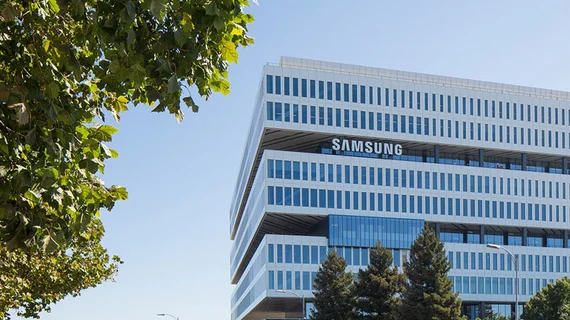Samsung finalizes $92M acquisition of French ultrasound AI firm Sonio
Technology giant Samsung has finalized its $92.4 million acquisition of ultrasound artificial intelligence firm Sonio, the two announced Monday.
The French Ministry of the Economy and Finance recently approved the deal, paving the way for Samsung to acquire 100% of Sonio’s shares. Founded in 2020, the acquired firm offers products to aid physicians in assessing and documenting OB/GYN scans, such as prenatal ultrasounds.
Last year, it earned U.S. Food and Drug Administration clearance for Sonio Detect—a software that allows sonographers, surgeons and other providers to perform fetal ultrasounds in real time.
“With the workforce shortages affecting the global healthcare industry, the real-time ultrasound exam guidance and quality assurance developed by Sonio is becoming more relevant to ensure high quality care,” Samsung Medison CEO Kyu Tae Yoo said said in a statement. “We look forward to combining Sonio’s and Samsung’s advanced engineering to enhance our ultrasound roadmap and introduce next generation AI technologies to the market.”
Samsung first announced plans to acquire Sonio in May. The same month, the Paris-based firm also said the U.S. Food and Drug Administration had cleared the second version of Sonio Detect. Following the closing, Sonio said it will continue developing products and services compatible with all ultrasound device brands.

